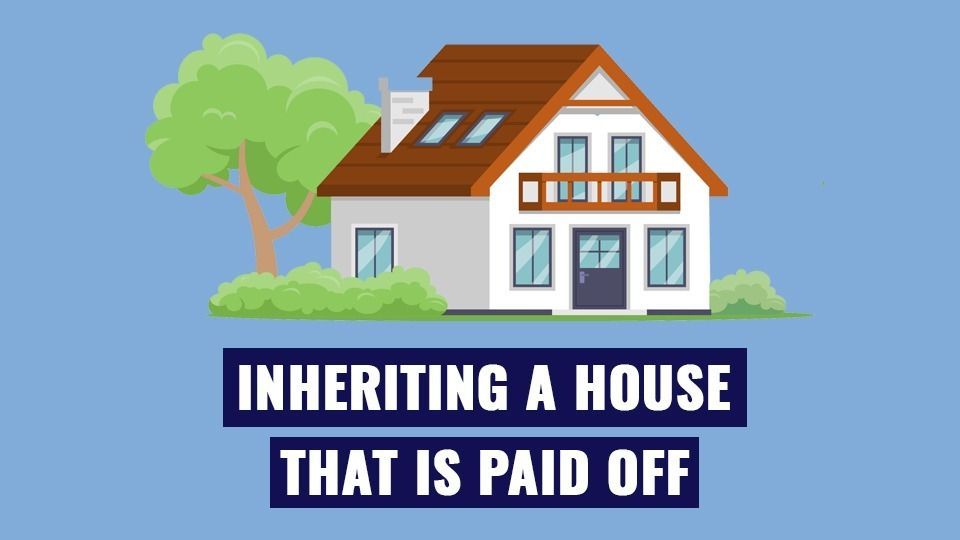Inheriting a House That Is Paid Off

Inheriting a property can be both a blessing and a challenge. It comes with emotional and financial implications that require careful consideration. When the inherited house is also paid off, it adds another layer of complexity to the situation.
The Probate Legal Process When Inheriting a House
When someone passes away and leaves a property behind, the process usually involves probate. Probate is the legal procedure through which a deceased person’s assets are distributed to their heirs. It determines the validity of the will, settles any outstanding debts, and ensures a fair distribution of the estate.
Wills and estate planning play a crucial role in property inheritance. If the deceased had a valid will, it can provide clear instructions regarding the distribution of the house. However, if there is no will or if it is deemed invalid, the property will be distributed according to state laws of intestacy. This can lead to potential challenges and disputes among family members.
Financial Implications and Responsibilities
Inheriting a house that is paid off comes with its own set of financial implications and responsibilities.
- Property taxes. The property tax assessment may change upon inheritance, and it’s important to understand how they work and what to expect.
- Maintenance and upkeep Owning a house means taking care of repairs, renovations, and general maintenance.
- Insurance requirements. Insurance for inherited properties may differ from your own insurance policies, so it’s essential to review and update accordingly.
While inheriting a house that is paid off does not come with the burden of mortgage payments, it opens up the potential for rental income or resale value. Renting out the property can provide a passive income stream, but it also comes with the responsibility of being a landlord.
Tax Considerations
When it comes to taxes, there are several considerations to keep in mind when inheriting a house. Estate tax and inheritance tax are two terms that often cause confusion.
- Estate tax is a tax imposed on the estate of a deceased person, based on the value of the estate.
- Inheritance tax is a tax imposed on the recipient of an inheritance, based on the value of the inherited property.
Step-Up in Basis
One significant benefit of inheriting a house is the step-up in basis. When you inherit a property, the cost basis is adjusted to the fair market value at the time of inheritance.
This means that if you choose to sell the property, you will only be liable for capital gains tax on the difference between the inherited value and the selling price. This can potentially save you a significant amount of money in capital gains tax.
Reporting the Inheritance
Reporting the inheritance on your tax returns is also a necessary step. The specifics may vary depending on your location, but generally, you will need to include the inherited property’s value and any associated income or expenses on your tax forms.
Deciding What to Do with the Inherited Property
Deciding what to do with the inherited property is a personal choice that depends on various factors.
Live in the Inherited House
One option is to keep the property and make it your own home. This can provide a sense of connection to your family history and eliminate the need to search for a new place to live.
Sell the Inherited Property
Another option is to sell the property. Selling an inherited house can provide a significant financial boost and give you the freedom to choose your own living situation.
Renting Out the Property
Renting out the property can generate passive income and provide financial stability in the long term. However, becoming a landlord comes with its own set of responsibilities, such as finding tenants, managing rental agreements, and maintaining the property.
When making a decision about what to do with the inherited property, it’s important to take into account both the financial aspects and the emotional factors. Consider how the property aligns with your long-term goals and whether it brings you joy or adds unnecessary stress.
Compare Options for Selling Your House
If you decide to sell the inherited house, you have a few options to consider.
Cash Home Sale
One option is a cash home sale, where you sell the property quickly and receive a lump sum payment. This can be beneficial if you need the money urgently or prefer a hassle-free selling process. However, keep in mind that cash home sales often result in a lower selling price compared to traditional sales.
Traditional Home Sale
In a traditional home sale, you list the property on the market with the help of a real estate agent. This allows for a wider pool of potential buyers and the opportunity to negotiate a higher selling price. However, it may also involve more time and effort on your part, as you’ll need to prepare the house for showings and navigate the complexities of the real estate market.
For Sale by Owner
For those who prefer a more hands-on approach, a for sale by owner (FSBO) option is available. This means you take on the role of the real estate agent and handle all aspects of the selling process yourself. While this can save you money on agent commissions, it requires knowledge of the real estate market and the ability to effectively market and negotiate the sale.
Sell Your House Fast in St. Louis, Missouri
If you need to sell your house fast but don’t want the hassle of a traditional home sale, contact Klamen Real Estate Buyers. We buy houses as-is. No repairs are needed. Avoid closing costs and realtor commissions. Close in as little as seven days. Call (314) 721-6800 and get a fast cash offer from our local home buyers in Missouri.
Get Your Fair & Honest All-Cash Offer Today! No Obligations!
We will get back to you as soon as possible.
Please try again later.
By submitting this form, you agree to our Conditions of Use and Privacy Policy. You may receive both automated and personal text messages. Reply STOP at anytime to opt-out.


